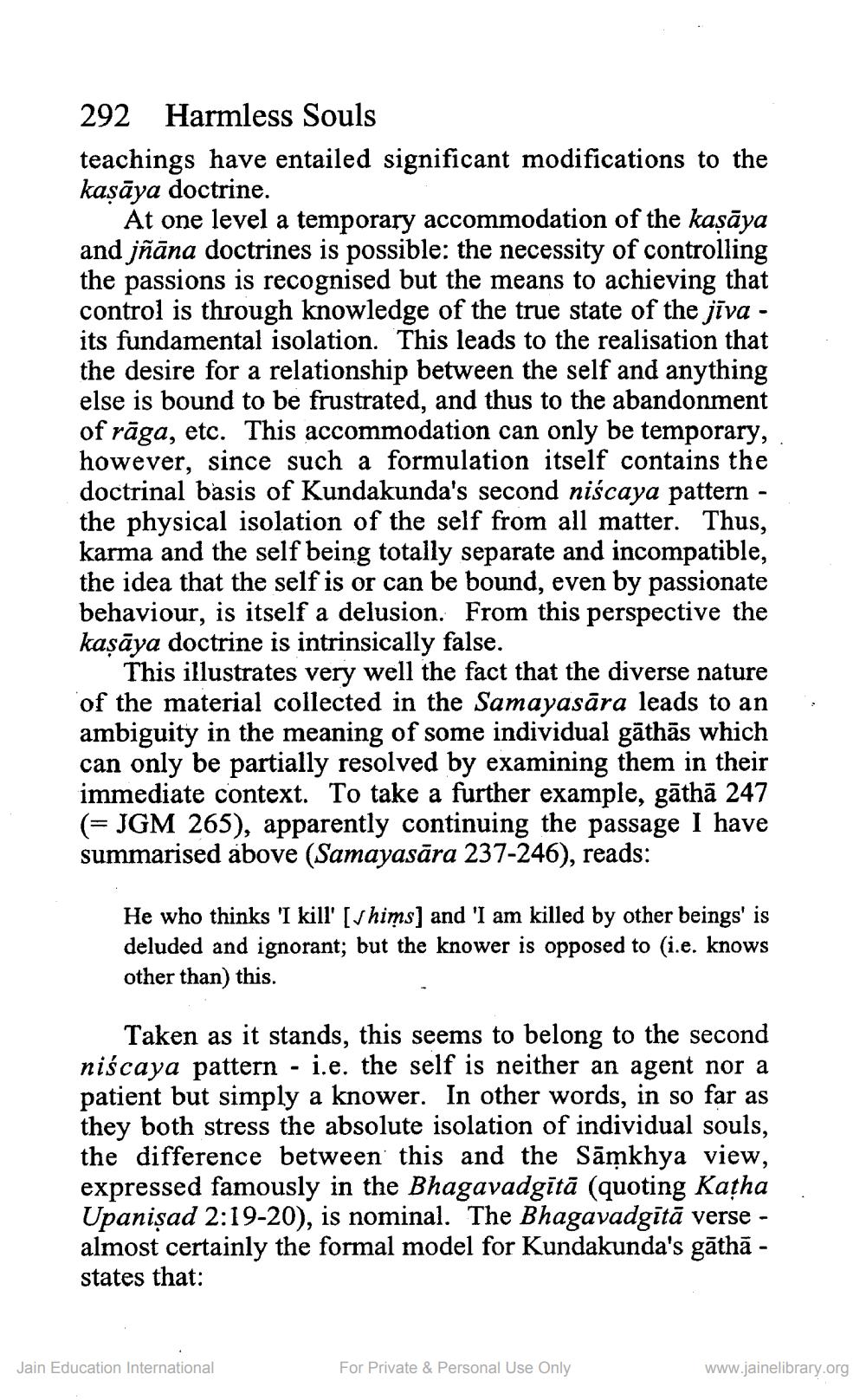________________
292 Harmless Souls teachings have entailed significant modifications to the kaşāya doctrine.
At one level a temporary accommodation of the kaşāya and jñāna doctrines is possible: the necessity of controlling the passions is recognised but the means to achieving that control is through knowledge of the true state of the jīva - its fundamental isolation. This leads to the realisation that the desire for a relationship between the self and anything else is bound to be frustrated, and thus to the abandonment of rāga, etc. This accommodation can only be temporary, however, since such a formulation itself contains the doctrinal basis of Kundakunda's second niścaya pattern - the physical isolation of the self from all matter. Thus, karma and the self being totally separate and incompatible, the idea that the self is or can be bound, even by passionate behaviour, is itself a delusion. From this perspective the kaşāya doctrine is intrinsically false.
This illustrates very well the fact that the diverse nature of the material collected in the Samayasāra leads to an ambiguity in the meaning of some individual gāthās which can only be partially resolved by examining them in their immediate context. To take a further example, gāthā 247 (= JGM 265), apparently continuing the passage I have summarised above (Samayasāra 237-246), reads:
He who thinks 'I kill' [Vhims) and 'I am killed by other beings' is deluded and ignorant; but the knower is opposed to (i.e. knows other than this.
Taken as it stands, this seems to belong to the second niscaya pattern - i.e. the self is neither an agent nor a patient but simply a knower. In other words, in so far as they both stress the absolute isolation of individual souls, the difference between this and the Sāmkhya view, expressed famously in the Bhagavadgitā (quoting Katha Upanişad 2:19-20), is nominal. The Bhagavadgitā verse - almost certainly the formal model for Kundakunda's gāthā - states that:
Jain Education International
For Private & Personal Use Only
www.jainelibrary.org




